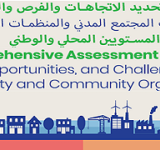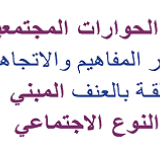Arab Integration: A 21st Century Development Imperative

Arab integration is not a new idea. It has been adopted as an official goal,attempted and abandoned at different times since the 195s. Some types of integration succeeded while many others did not,the casualties of wavering political will and unclear plans. Failure has deterred further attempts. Some believe that,just as external and internal obstacles thwarted integration in the past,they would do so again. Advocates of integration,however,argue that the region is enviably placed for close cooperation,with a common language and culture,a shared history and geographical proximity. No other regional grouping in the world started from such promising beginnings. This report opens with this argument and goes on to make a case for integration as a prerequisite for human development and renaissance in the region. The extraordinary wave of civil revolts across the region has made comprehensive integration both more urgent and more feasible. These liberating rebellions shook republics and monarchies from the Atlantic to the Gulf. They unified the Arab political space with their common call for justice,equality,economic opportunities and freedom. But their hopes and expectations are on a scale that no single Arab country by itself can satisfy. Only through integration can the Arab countries initiate a renaissance equal to such sweeping demands. This historic change,and the popular movements behind it,provide an unprecedented impetus for integration,and a powerful assurance that,this time,the Arabs will see that the process is sustained and completed.


